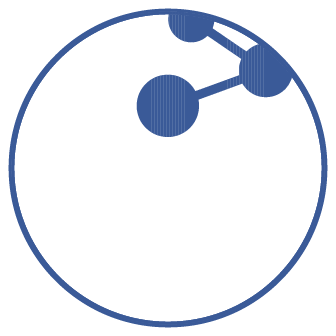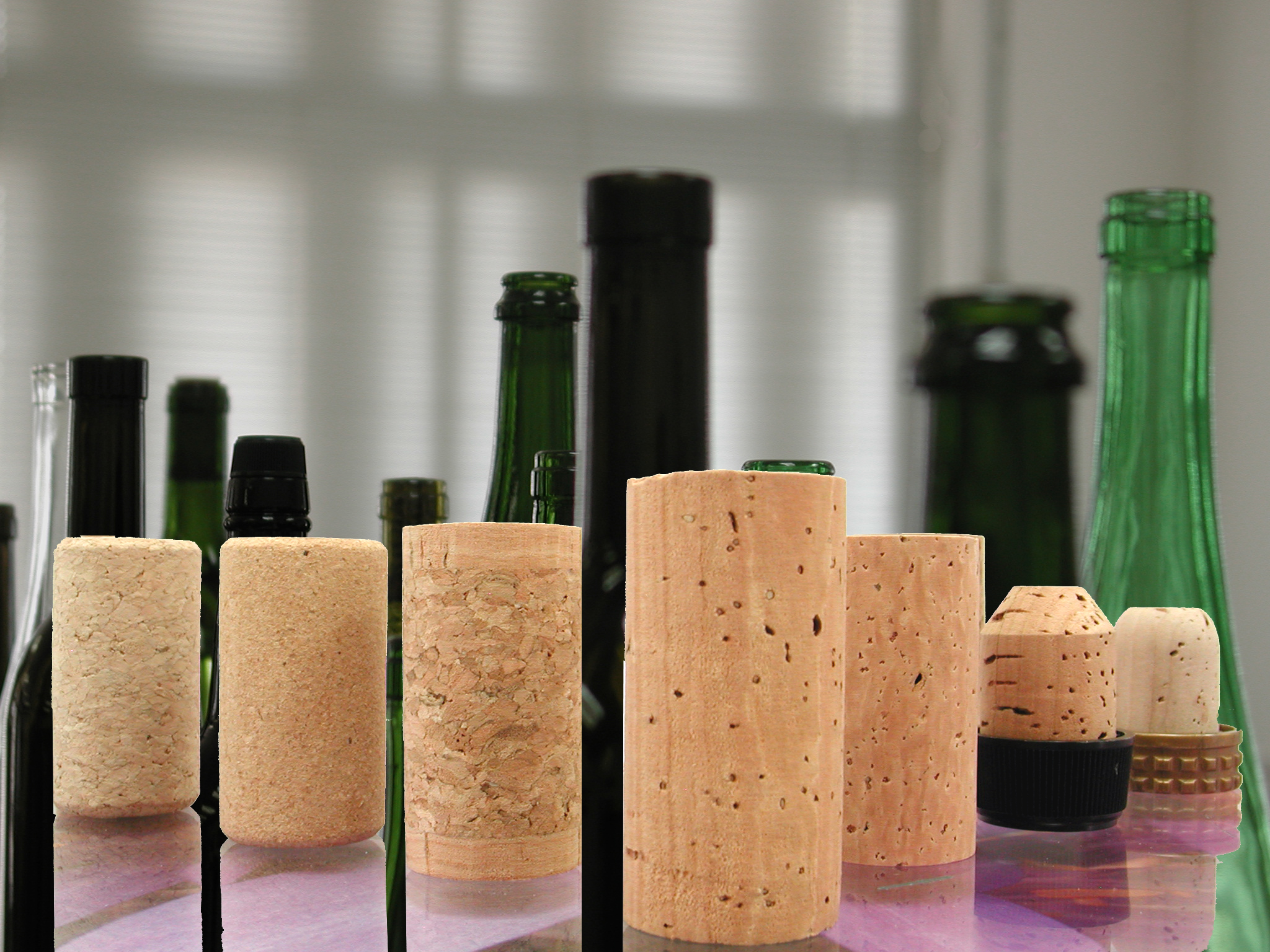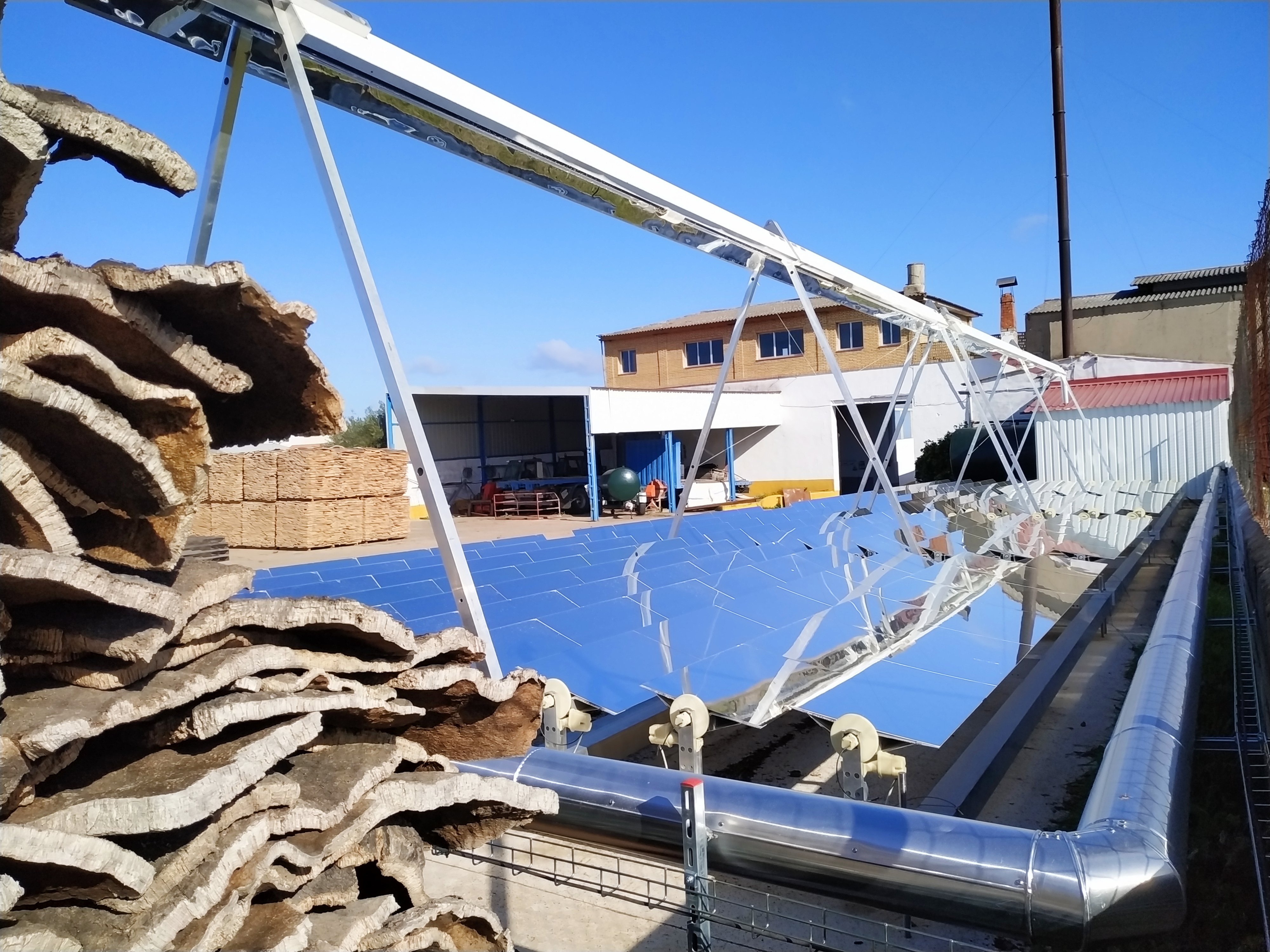Cork
 General information
General information
Cork is the plant tissue that serves as natural protection of the cork oak (Quercus suber L.). It is a high-quality organic product provided with the following properties, amongst others: lightweight, elasticity, durability, ease of handling, non-toxic, watertight, high heating power and thermal insulation. These qualities make it suitable for many uses and applications.
Cork production in Spain is estimated at approximately 70,000 tons/year, with Extremadura being the second Autonomous Region in the ranking of the top cork producers with 23,000 tons/year. The cork industry employs approximately 2,000 people and yields an annual turnover of 350 million €.
80 % of the cork production is mainly directed to making cork stoppers for the wine industry, and the remainder is used in various applications such as construction, decoration, crafts, textiles, etc.
The cork industry can be classified into two large groups: the first transformation industry, which represents the preparation industry; and the second transformation industry, which includes the remaining industries, i.e. manufacturers of cork stoppers, pellets, agglomerates and linings. In Extremadura, cork production and industrialisation takes place mainly in San Vicente de Alcántara and Jerez de los Caballeros. The main activities of the cork factories of the region are the first transformation of cork and the manufacture of cork stoppers. The cork that is transformed in Extremadura is shipped to other regional, national and international companies for the second stage of transformation.
 Characterisation and technology of cork products
Characterisation and technology of cork products
The process of advance characterisation and appraisal of the forest resources at CICYTEX involves three lines of action: On the one hand, the technological improvement of the properties of cork stoppers through innovation studies dealing with the improvement of the production process; and other projects dealing with the application of new analysis tools that may allow for a reinforced monitoring of cork quality.
On the other hand, we deal with new cork applications. Given its exceptional properties, this product can have multiples applications. The extraction of bioactive substances for various commercial uses is one of the outstanding applications, together with the use of cork in the construction industry through the optimisation of its sound and thermal isolation properties.
The chemical composition of cork is also a line of study. Its properties depend as much on cellular structure and chemical features as on the distribution and relative quantities of its components. Thus, CICYTEX conducts studies on cork composition based on quality, the alterations that diminish it and geographical origin.
 Environmental, energy and technical optimisation of the transformation agroindustrial processes
Environmental, energy and technical optimisation of the transformation agroindustrial processes
Promoting technological innovation of the production processes and environmental improvement of the cork industry are the objectives at CICYTEX within this field. We aim at integrating renewable energies (solar and biomass) within the sector and optimising energy efficiency for the industrial processes with the aim of reducing the carbon footprint.
Besides, we seek to introduce the concepts of bio-refinery and circular economy through the sustainable integration and optimisation of research into advanced appraisal and application of renewable energies.
The research team works on innovative treatments for the environmentally-efficient management and enhancement of the solid and liquid waste derived from this sector, adding value to this waste by recovering useful by-products of commercial interest (biogas, fertilisers, nutraceuticals, etc.).






